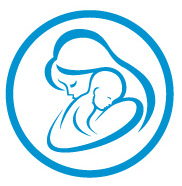 Infant Mental Health Online Course(s) & Continuing Education
Infant Mental Health Online Course(s) & Continuing Education
Access the latest clinical skills and research for Infant Mental Health for PERINATAL MENTAL HEALTH professional training. These Infant Mental Health online courses provide practice-changing skills and valuable perspectives from leading global experts. This Infant Mental Health education has been accredited for a variety of CEUs / CERPs and can be accessed on-demand, at your own pace.

Infant Mental Health: What Does It Look Like in Practice?

Gretchen Becker Crabb is an Occupational Therapist, Licensed Professional Counselor, and Endorsed Infant Mental Health Therapist. She is also a Certified Lactation Counselor, La Leche League Leader, and Brazleton Newborn Observation (NBO) trainer.
Gretchen’s passion is rooted in fostering lifelong relationships and connection through co-regulation in pregnancy and beyond. Her unique approach to lactation support and therapy is rooted in culturally attuned sensory, somatic, and trauma-informed mental health techniques.
Gretchen owns and operates a private practice in Madison, Wisconsin. For 21 years, she has provided developmental, trauma, feeding, and attachment support for tiny humans and their caregivers in birth to three, preschool, private practice, and peer group settings. Gretchen is an international speaker, reflective supervisor, and infant mental health consultant. In these roles, she offers compassionate, experiential, and reflective holding spaces for professionals. She is a proud United States Air Force spouse and mother of three boys.
Topic: Infant Mental Health: What Does It Look Like in Practice? - [View Abstract]
Topic: Scent-Sational Connections: The Role of Olfaction in Development - [View Abstract]
Topic: Sensory Processing and Breast/Bodyfeeding: Using Co-Regulation to Support the Feeding Relationship - [View Abstract]
Topic: Vestibular Processing: Using the Sixth Sense to Support Lactation and Parent/Infant Relationships - [View Abstract]
In this presentation, we will dive into the world of infant mental health and explore the unique ways that providers promote relationship development in families and communities for the first five years and beyond. We will discuss the basic philosophies and strategies used in the field of infant mental health, then engage together in an interactive and thought-provoking case study. Somatic techniques, reflective strategies and cultural considerations will be woven throughout to deepen learning and curiosity-- bringing the concepts to life and promoting the integration of infant mental health concepts into your daily practice.

Interdisciplinary Neuroprotective Practice Standards and Perinatal Mental Health in the NICU

Dr. Craig lives in metro Atlanta, GA., is an Associate Professor and the Department Chair of Brenau University’s School of Occupational Therapy program. She has been practicing for 35 years, received her degree in OT at the Medical College of Georgia, her MBA from the University of Alaska-Fairbanks, and her PhD in Infant and Childhood Disorders with emphasis in Mental Health and Developmental Disabilities from Fielding Graduate University. Jenene currently serves as the Director of Education for National Association of Neonatal Therapists (NANT). She is also on the executive committee of the Board of Directors for the National Perinatal Association. In addition to consulting with several local NICUs, Jenene works PRN at a regional Level III NICU. She serves as a national speaker for the care of premature infants and families embattled in the stressful environment of the NICU. Jenene’s personal passion is to support multidisciplinary work in the NICU with a focus on parent-infant outcomes.
Hospitalization of a baby in a Neonatal Intensive Care Unit (NICU) has been described as a traumatic experience for both parents and baby leading to higher rates of postpartum depression and posttraumatic stress disorder in parents and to adverse developmental, cognitive and behavioral outcomes in their infants. The focus of care in the NICU has been broadening and evolving to emphasize the importance of supporting the family-infant relationship, since ultimately, the well-being of the family affects the well-being of the baby. Research documents that NICU parents both desire and benefit from psychosocial support from NICU staff, yet many staff, including neonatologists and neonatal nurses, do not feel they have adequate skills to support these needs. NICU staff need knowledge and tools beyond what typical healthcare education provides. Interdisciplinary recommendations for work toward best practice around psychosocial support of infants/parents and staff are presented.

The Connected Baby: How Understanding Infant Brain Development Changes Our View of Humanity

Dr. Suzanne Zeedyk is a research scientist fascinated by babies’ innate capacity to connect. Since 1993, she has been based at the University of Dundee (Scotland), within the School of Psychology, where she now holds an Honorary Post. In 2011, she stepped away from a full-time academic post in order to establish an independent training enterprise, the aim of which is to help the public understand what science now understands about the importance of emotional connection for human health and happiness. She works internationally with organisations keen to think more deeply about fostering connection, compassion and resilience. In the last 5 years, more than 40,000 people have attended her speaking events. Suzanne’s core aspiration is to strengthen awareness of the decisions we take about caring for our children — because those choices are integrally connected to our vision for the kind of society we wish to build. More information is available on www.suzannezeedyk.com.
Human infants are born already connected to other people. Over the past 30 years, science has gained a much better understanding of the sophistication of babies’ innate social capacities, including the way that infants’ early emotional experiences drive brain development. Many practitioners remain unaware of these discoveries, despite the implications they hold for delivering high-quality care. This presentation will review these discoveries and reflect on what they tell us about our own humanity. Emotionally healthy individuals and emotionally healthy societies rely on empathy, resilience and trust. These qualities are precisely the ones being wired into the brain in the earliest years of life.

The First 1,000 days: Promoting Infant Mental Health

Monica Roosa Ordway, PhD, APRN, PNP-BC is an assistant professor at Yale University School of Nursing where she teaches community health in the Graduate Entry Prespecialty into Nursing and Masters programs. Her research interests include the assessment of psychosocial and biological variables that influence early parent-child interactions and the development of the capacity for parental reflective functioning (RF). Her current research is focused on examining sleep, stress, and health among toddlers living with socioeconomic adversity. Her research goals include evaluating programs using a biological-psychosocial profile in order to translate programs for practical and sustainable use within pediatric clinical settings with the aim of mitigating the effects of toxic stress and the development of subsequent risk factors that lead to chronic illnesses. Dr. Ordway is also a pediatric nurse practitioner and board certified lactation consultant with almost 20 years of clinical experience.
Infant mental health is an interdisciplinary professional field of inquiry, practice and policy, concerned with alleviating suffering and enhancing the social and emotional competence of young children. The focus of this presentation is to highlight the importance of supporting the relationships between infants and toddlers and their primary caregivers to ensure healthy social and emotional development. Considering the increasing understanding of the impact of toxic stress on the lifelong health of very young children, it is critical that we identify methods to buffer the experience of toxic stress on children beginning at the earliest stages of life. Without appropriate regulation from a supportive caregiver, exposure to toxic stress in early childhood can result in wide-ranging physiological disruptions, including alterations in mental health. This presentation will provide an overview of infant and toddler development, the toxic stress literature, and provide important information on how to screen and assess infants (and toddlers) and their families for risk and protective factors that may trigger or buffer the effects of toxic stress.










